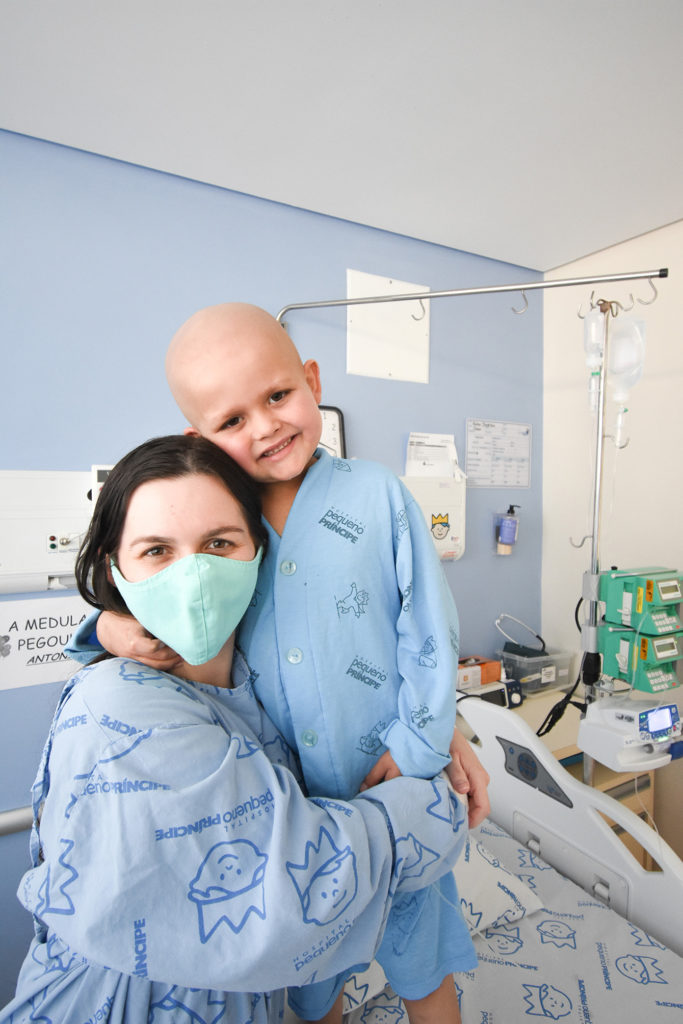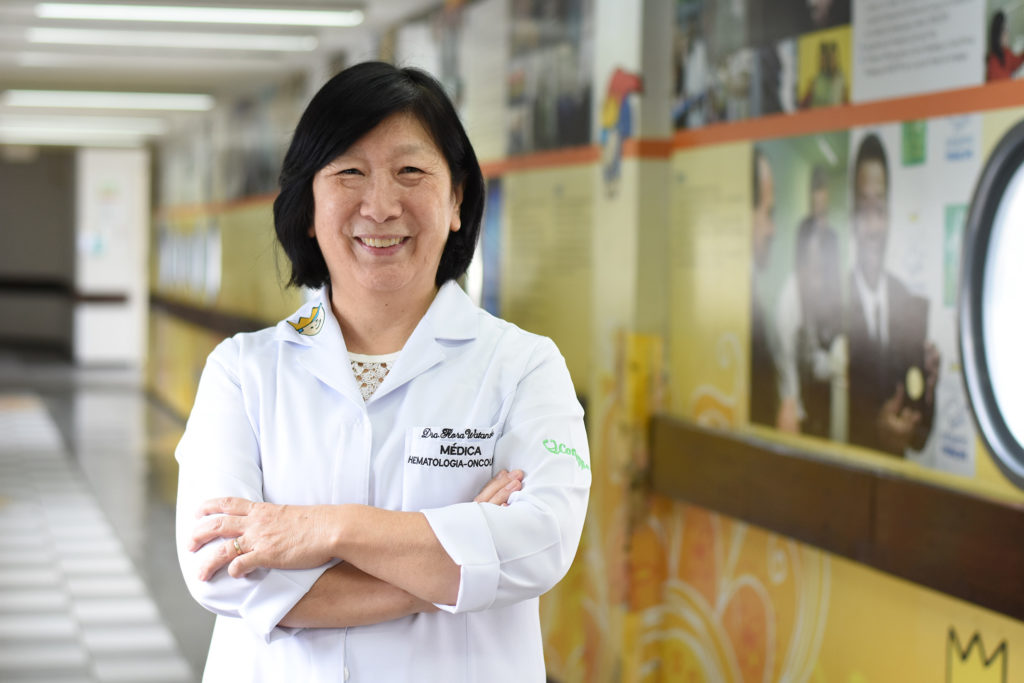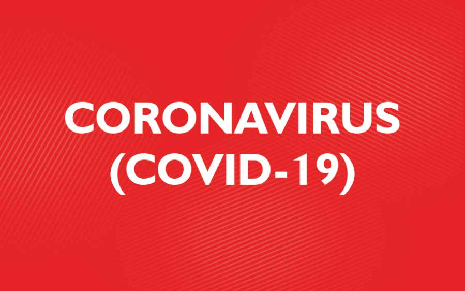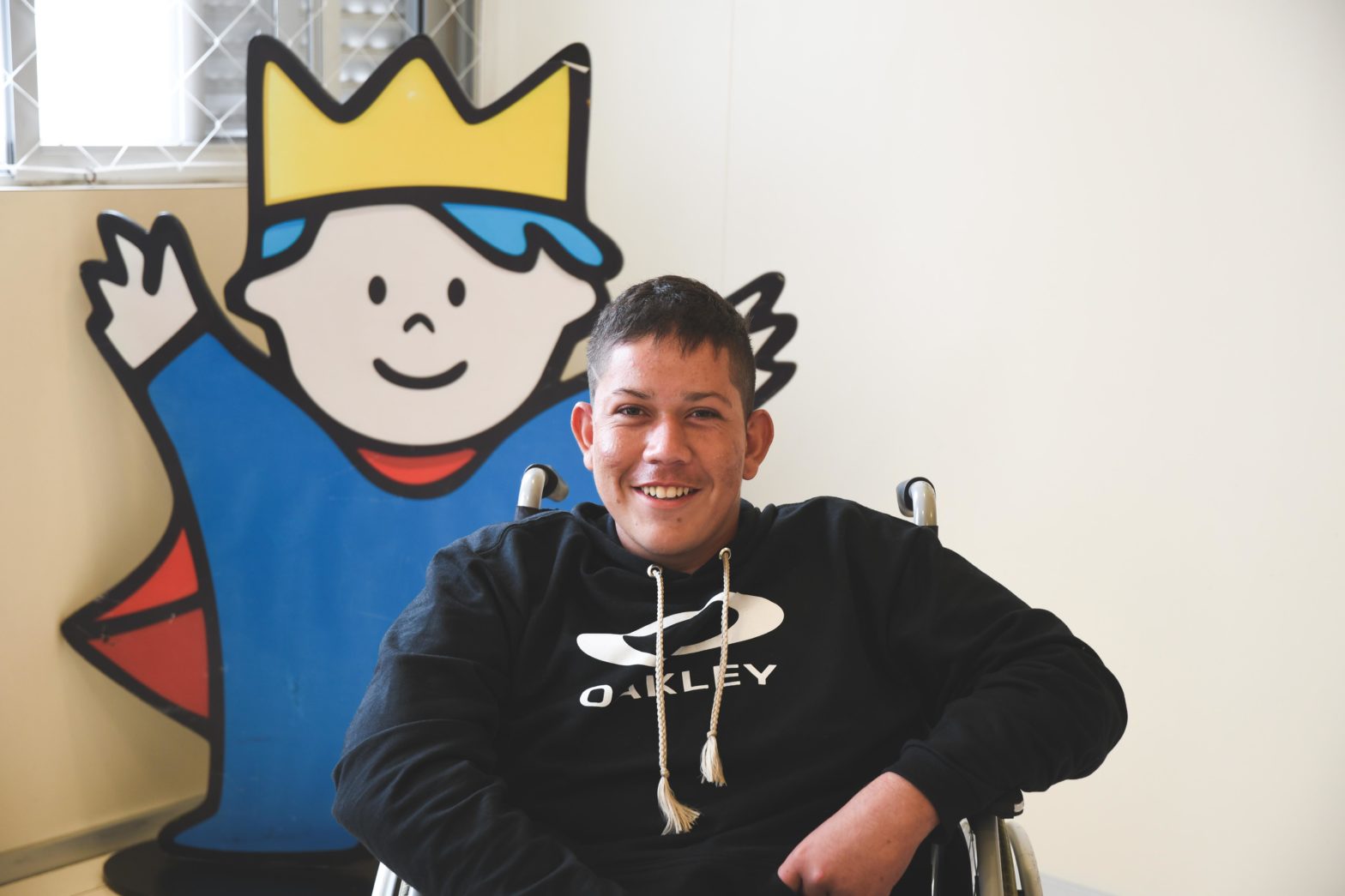Pequeno Príncipe’s Oncology Service maintains normal care during the pandemic
Patients already diagnosed continued to have full access to their treatment, with all the necessary security; number of new diagnoses, however, decreased

Antoni Demétrio Vieira is 5 years old and has been fighting acute lymphoid leukemia for a year and a half. A resident of Araranguá, in the interior of Santa Catarina, he was sent to Pequeno Príncipe Hospital earlier this year to continue his treatment. “Antoni needed a bone marrow transplant, as only chemotherapy was not able to solve his problem. In our region, no hospital does this kind of transplant. We came here in the middle of the pandemic, but our biggest fear was not being able to do the transplant. We got a compatible donor and underwent the bone marrow transplant on the 7th of August. Twenty days later, we received the news that the transplant was successful. We waited so long for this moment,” says the mother, Bruna Demétrio Vieira.
As with the Antoni transplant, which was performed during the coronavirus pandemic (COVID-19), all patients undergoing treatment at the Oncology and Hematology and the Bone Marrow Transplant (BMT) services had their treatments continued, in full, at the Pequeno Príncipe. The institution has prepared new care flows to receive its patients safely.
The head of the Oncology and Hematology Service, Flora Mitie Watanabe, says that no patient has had the treatment stopped. “What happened was a reduction in the number of first consultations, the ones in which we make the child’s diagnosis. This reduction occurred because the municipalities in the countryside stopped addressing patients and also because the families themselves stopped looking for care, for fear of the coronavirus,” she explains.
From March to July 2019, for example, 140 consultations of new patients were carried out by the Public Health System (SUS). In 2020, in the same period, there were only 30 consultations; that is, a 78% reduction. “Not all consultations mean a positive diagnosis for neoplasms, but there are certainly a significant number of children who are not being diagnosed,” she points out.
The big problem with this lack of diagnosis is that childhood cancer usually progresses very fast. “The child recovers faster, but it also gets very serious in less time. In a week they are fine and in two to three weeks the disease is already in an advanced state,” reports the doctor. In addition, cancer in children is usually linked to unavoidable genetic factors. That is why early diagnosis is so important.

As a referral hospital for the treatment of childhood cancer cases, with experience of more than 50 years of service, Pequeno Príncipe calls on families to bring their children to consultations, in cases of suspicion. “With early diagnosis, we greatly increased the chances of cure,” informs the doctor.
Since the beginning of the 2000s, the Hospital also runs annual campaigns to raise awareness of society, warning about signs and symptoms of cancer, and about the increase in the chances of cure when the disease is discovered in its early stages.
Maintenance of treatment
Patients who are undergoing treatment follow up – that is, those who have already completed chemotherapy cycles – were monitored by telephone to avoid exposure to transport and the hospital environment during this period. “Children who finished cancer treatment are followed up for at least five years. For these boys and girls, we try to follow up by phone, collecting mothers’ reports and checking blood tests. Thus, we guarantee safety both in relation to oncological disease and in relation to COVID-19,” details Flora.
Bone marrow transplant
The Bone Marrow Transplant Service of Pequeno Príncipe also maintained care during the pandemic. “We followed the recommendation of the health authorities to avoid procedures that could wait. However, our patients have severe conditions. So, the attendance had only a small reduction,” highlights one of the doctors responsible for the Service, Cilmara Cristina Kuawahara.
Like little Antoni, 79% of transplants performed in 2019 were for patients with neoplasms. In 2020, the statistics follow the same trend. Of the 30 transplants performed so far, 19 (63%) were in boys and girls diagnosed with neoplasms. “Acute lymphoid leukemias (ALL) and acute myeloid leukemias (AML) are the neoplasms that have predominated in our service. And these patients cannot wait,” concludes the doctor.
More
COVID-19 Report
Until 10 a.m. on September 11, the Pequeno Príncipe Hospital treated 643 suspected cases of the disease, 97 of which were confirmed
Pequeno Príncipe assists patients with Multisystem Inflammatory Syndrome
Aware of its role as a reference, the Hospital alerts society about this complication associated with COVID-19, which has a high mortality rate




